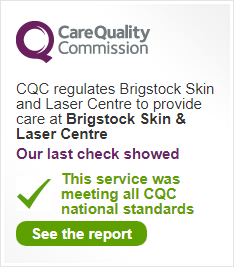Can I get laser hair removal on the NHS?
Whilst the short answer is “yes, laser hair removal is available on the NHS”, there are some significant caveats. The main one is that a clinical diagnosis is required and your local Clinical Commissioning Group will then consider if the condition is appropriate for funding.
While there are without doubt many women who suffer from clinical conditions because of excess and unwanted hair growth accessing treatment on the NHS can be a lengthy process. Wait times have also been significantly affected by the pandemic so expect to wait some time for this type of treatment.
What types of excessive hair growth can potentially be treated on the NHS?
Some women suffer with a condition called hirsutism – this is excessive hair growth which manifests itself in a male-like pattern as thick, dark hair on the face, neck, chest, tummy, lower back, buttocks or thighs. It’s caused by an increase in androgens, a type of hormone. It’s often caused by polycystic ovary syndrome (PCOS).
If you are struggling with PCOS your GP may be able to help, for example by looking at ways of controlling your hormone levels using the contraceptive pill. They may advise you to try to lose weight – this can also help with hormone levels.
You can find out more about PCOS here and hair removal methods to try here.
Is it just a problem for women?
While hirsutism is a term used for women with excessive hair, hypertrichosis refers to excessive hair growth in either women or men, which can be anywhere on the body. For men too, too much hair where it’s not wanted can be a debilitating condition.
There may be help available for transgender patients on a Gender Care Pathway. Referral will be via a GIC, Gender Identity Clinic. Under certain circumstances, if a pat funding is provided via NHS England for the removal of unwanted hair growth if a patient is on a Gender Care Pathway, referral will come from a Gender Identity Clinic GIC.
Mental health
Undoubtedly women with disproportionate, male-pattern hair growth can find this has a negative impact on their mental health. Whether rightly or wrongly, in a world where everyone is increasingly body-conscious, thick hair in the wrong place can cause self-consciousness leading to lack of confidence and even depression.
So what can you do about excessive hair?
Laser hair removal is a good option to consider. To make a permanent difference, normally you will need a course of between 6 to 8 sessions and possibly the occasional top up afterwards. If you have very excessive hair growth, you might need more.
Helping to fund your treatment
When you book a series of treatments you should expect a discount or tailored package, for example 7 treatments for the price of 5 as offered by Brigstock Skin & Laser. Many clinics will have special offers available, so keep an eye out for these.
You can also look for a payment plan which gives you a set time to pay. There may be an additional cost to use this service and you will be tied into a contract.
Value for money
To make sure that your treatment gives you the results you want, it’s helpful to remember that value for money is achieved not necessarily by cheaply priced sessions, but through using a clinic that focuses on delivering results.
Consultation
Before you sign up to anything, you should have a consultation where you can discuss what you want to achieve. This consultation is your chance to find out how many treatments you are likely to need, if there are discounts available, what quality controls are in place, and whether the clinic offers a results guarantee.
Most clinics will offer a free consultation so you know what you’re getting into before you spend any money.
How can you find out if funding is possible for me via the NHS?
Laser hair removal is, generally, assumed to be a cosmetic procedure, and for most people, that’s the case. However, if you have PCOS, or any other condition that your local Clinical Commissioning Group considers appropriate, it may be worth talking to your GP about the option of applying to your local Exceptional Funding Panel. The panel may possibly consider funding permanent laser hair removal treatment or other treatments if your condition is exceptionally debilitating or your circumstances are exceptional. But bear in mind that particularly at the moment, the NHS has many other priorities which may well go ahead of such funding.
Shop around
Before you visit a clinic, do your research and talk to friends and family who have had laser hair removal. Check out reviews, and costs. To help you with comparisons, take a look at our LHR reviews here and our individual and package costs here.
At Brigstock Skin & Laser our experienced team will always provide you with clear advice about your options and the results you should expect. To book your FREE initial consultation call now on 020 3820 4822 or click here.





